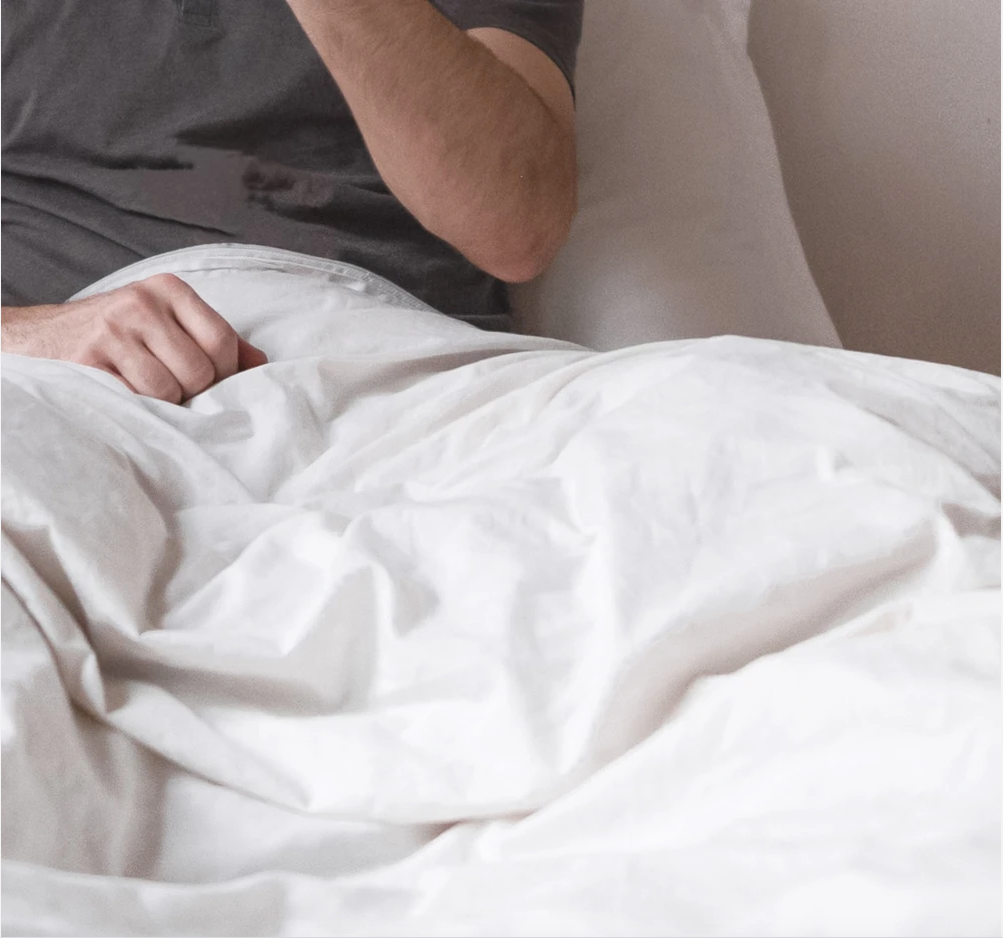With the ongoing pandemic, many are becoming increasingly anxious and may even be struggling to get a good night sleep. One way to help you sleep better is to ensure you are in a hygienic environment, including in the bedroom.
The NHS have advised that normal washing of fabric, such as bed linen, towels and clothing, will reduce the risk of germs being transmitted, and that in certain situations clothes should be washed at higher than normal temperatures and with a bleach-based product to minimise the transmission risk as much as possible.
Also, if you're sharing a house with someone who is unwell, the Center for Disease Control and Prevention suggests that it's best to handle all items wearing latex gloves. If none are available, be sure to thoroughly wash your hands afterwards.
As many may be confused about how much they should be laundering their bed linen in these uncertain times, we decided to investigate the public’s laundry habit and get some expert advice into the subject. Read on to find out more…
Expert cleaning advice
We questioned Lisa Evans, spokesperson from myjobquote.co.uk, to gather more insight into how often bedroom-based linen should be laundered:
- Duvets should be laundered every two to three months, or at least twice a year to stop an infestation of bed mites
- Duvet covers and bottom sheets will need cleaning once a week unless something has been spilt on them. It’s crucial to ensure duvets/sheets are regularly cleaned as dust mites can inhabit them, which can cause allergies and health issues if not kept under control. If you've been ill, washing your sheets more than once a week is important to get rid of any bacteria. Always wash your duvet/sheets on a hot wash to kill any bacteria
- A well-used blanket should be washed every week or fortnightly to keep it clean and fresh
- Pillowcases need to be washed once a week, and twice a week if you sleep on your stomach, as pillow are close to your face, they need to be kept clean
- Pillows need to be washed in a washing machine every three months to keep them fresh and hygienic
- A mattress protector every two months, if you have pets or allergies it’s recommended that you wash them more often
- A mattress should be cleaned at least once a year, to minimise dirt and grim
- Pyjamas should be washed weekly, or every few days in summer months
UK laundry and hygiene habits
As well as getting insight from Lisa, we also polled 1,002 UK residents to investigate the public’s laundry and hygiene habits, and based on the results, the UK public are not laundering their duvet covers, bottom sheet, pillowcases or pyjamas nearly enough as they should be.
Summary of our survey findings:
- Mattress
- Cleaned 11.49 times a year, on average
- Equates to every 31.76 days
- More than advised frequency
- Pillows
- Cleaned 14.33 times a year, on average
- Equates to every 25.46 days
- More than advised frequency
- Duvet
- Cleaned 15.88 times a year, on average
- Equates to every 22.99 days
- More than advised frequency
- Duvet covers
- Cleaned 30.48 times a year, on average
- Equates to every 11.98 days
- Less than advised frequency
- Bottom sheet
- Cleaned 33.05 times a year, on average
- Equates to every 11.04 days
- Less than advised frequency
- Pillowcases
- Cleaned 33.69 times a year, on average
- Equates to every 10.84 days
- Less than advised frequency
- Pyjamas
- Cleaned 56.22 times a year, on average
- Equates to every 6.49 days
- Advised frequency, or very close to
Where bottom sheets should be laundered once a week, and more often if ill, the public are typically leaving it 11 days between each wash. Likewise, the same frequency is advised for duvet covers, but on average people are washing their covers every 12 days, which is around half as much as they should be.
For pillowcases, it is advised that these are laundered once a week, or twice a week if you sleep on your stomach. In comparison, people are only cleaning these every 11 days, which is not adequate.
Our supersoft bedding sets are available to ensure a fresh and luxurious feel to get a new set if yours are looking tired and old.
For those who wear pyjamas, it is advised to launder these once a week, which most are doing (the average is every 6 or so days). However, this should be increased to every few days in the summer months.
Interestingly, our research found that while women typically clean their duvet covers, pillowcases, bottom sheet, mattress and pyjamas more regularly than men do, men were more likely to clean the actual duvet and pillows, which can often get forgotten about.
The survey findings also suggested that 64% are potentially bringing dirt into their sleep environment by not showering before bed every day, and more than 1 in 10 (12%) do not shower daily. Men were most at risk of bringing dirt into their sleep environment by not showering before bed every day, as well as also less likely to shower daily in general. When it came to location splits, Cardiff were the worst offenders when it came to hygiene before bed, followed by Edinburgh and Liverpool. On the other hand, Belfast were the most likely to practice a good level of hygiene before bed, with almost two thirds (64%) showering every evening before climbing into bed.
Lisa advised that as well as sufficient laundry frequency, “showering is essential for wellbeing and health and showering before bed is the recommended time of day to do it! This is to wash away the days dirt and grime and help you keep hygienic. Also, getting into bed with shoes on can cause huge health risks due to the germs and bacteria that can appear on the bottom of them.”
We hope the advice in the article helps to answer any questions you may have about adequate laundering of bed linen. As a disclaimer, please note that the information in this post is accurate as of the publication date. As the situation surrounding the coronavirus pandemic continues to develop rapidly, it's possible that some information and recommendations may have changed since publishing. For the latest advice, the World Health Organisation or the National Health Service (NHS) can also provide useful information and support.







